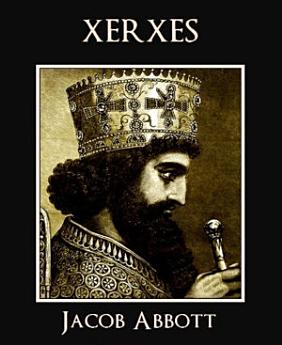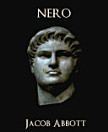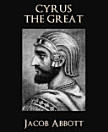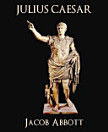Xerxes
Jun 2019 · BookRix
5.0star
6 reviewsreport
Ebook
233
Pages
family_home
Eligible
info
reportRatings and reviews aren’t verified Learn More
About this ebook
Xerxes I of Persia also known as Xerxes the Great was the fourth king of the kings of Achaemenid Empire. Xerxes was crowned and succeeded his father in October–December 486 BC when he was about 36 years old. The transition of power to Xerxes was smooth due again in part to the great authority of Atossa and his accession of royal power was not challenged by any person at court or in the Achaemenian family, or any subject nation.
Almost immediately, Xerxes crushed revolts in Egypt and Babylon that had broken out the year before, and appointed his brother Achaemenes as governor or satrap (Old Persian: khshathrapavan) over Egypt. In 484 BC, he outraged the Babylonians by violently confiscating and melting down the golden statue of Marduk the hands of which the rightful king of Babylon had to clasp each New Year's Day. This sacrilege led the Babylonians to rebel in 484 BC and 482 BC, so that in contemporary Babylonian documents, Xerxes refused his father's title of King of Babylon, being named rather as King of Persia and Media, Great King, King of Kings (Shahanshah) and King of Nations (i.e. of the world).
At the Battle of Thermopylae, a small force of Greek warriors led by King Leonidas of Sparta resisted the much larger Persian forces, but were ultimately defeated. According to Herodotus, the Persians broke the Spartan phalanx after a Greek man called Ephialtes betrayed his country by telling the Persians of another pass around the mountains. After Thermopylae, Athens was captured and the Athenians were driven back to their last line of defense at the Isthmus of Corinth and in the Saronic Gulf. What happened next is a matter of some controversy. According to Herodotus, upon encountering the deserted city, in a fit of rage uncharacteristic even for Persian kings, Xerxes had Athens burned. He immediately regretted this action and ordered it rebuilt the next day. However, Persian scholars dispute this view as pan-Hellenic propaganda, arguing that Sparta, not Athens, was Xerxes's main foe in his Greek campaigns, and that Xerxes would have had nothing to gain by destroying a major center of trade and commerce like Athens once he had already captured it.
Almost immediately, Xerxes crushed revolts in Egypt and Babylon that had broken out the year before, and appointed his brother Achaemenes as governor or satrap (Old Persian: khshathrapavan) over Egypt. In 484 BC, he outraged the Babylonians by violently confiscating and melting down the golden statue of Marduk the hands of which the rightful king of Babylon had to clasp each New Year's Day. This sacrilege led the Babylonians to rebel in 484 BC and 482 BC, so that in contemporary Babylonian documents, Xerxes refused his father's title of King of Babylon, being named rather as King of Persia and Media, Great King, King of Kings (Shahanshah) and King of Nations (i.e. of the world).
At the Battle of Thermopylae, a small force of Greek warriors led by King Leonidas of Sparta resisted the much larger Persian forces, but were ultimately defeated. According to Herodotus, the Persians broke the Spartan phalanx after a Greek man called Ephialtes betrayed his country by telling the Persians of another pass around the mountains. After Thermopylae, Athens was captured and the Athenians were driven back to their last line of defense at the Isthmus of Corinth and in the Saronic Gulf. What happened next is a matter of some controversy. According to Herodotus, upon encountering the deserted city, in a fit of rage uncharacteristic even for Persian kings, Xerxes had Athens burned. He immediately regretted this action and ordered it rebuilt the next day. However, Persian scholars dispute this view as pan-Hellenic propaganda, arguing that Sparta, not Athens, was Xerxes's main foe in his Greek campaigns, and that Xerxes would have had nothing to gain by destroying a major center of trade and commerce like Athens once he had already captured it.
Ratings and reviews
5.0
6 reviews
Saman Kianfar
- Flag inappropriate
August 5, 2017
Iranian love every people's in the other countries
Rate this ebook
Tell us what you think.
Reading information
Smartphones and tablets
Install the Google Play Books app for Android and iPad/iPhone. It syncs automatically with your account and allows you to read online or offline wherever you are.
Laptops and computers
You can listen to audiobooks purchased on Google Play using your computer's web browser.
eReaders and other devices
To read on e-ink devices like Kobo eReaders, you'll need to download a file and transfer it to your device. Follow the detailed Help Center instructions to transfer the files to supported eReaders.






